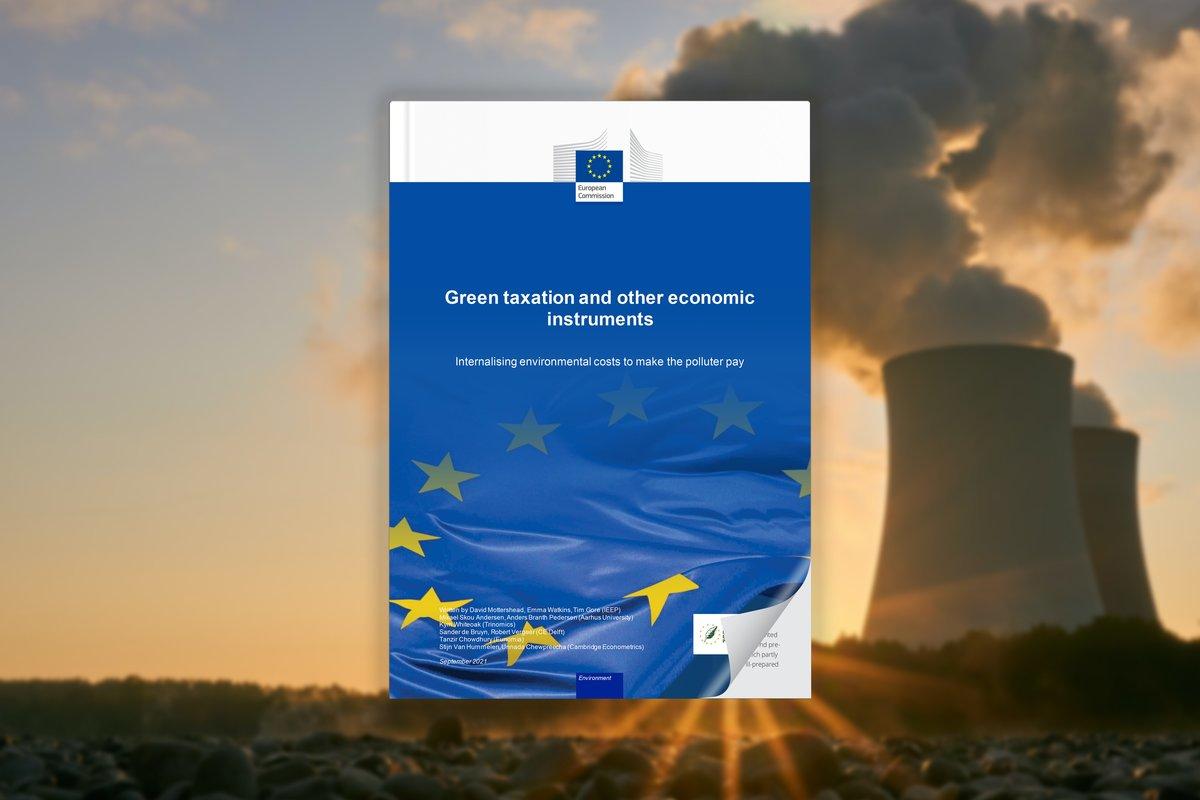AUTHORS: David Mottershead – Tim Gore – Emma Watkins – Mikael Skou Andersen – Anders Branth Pedersen (Aarhus University) – Kym Whiteoak (Trinomics) – Sander de Bruyn (CE Delft) – Robert Vergeer (CE Delft) – Tanzir Chowdhury (Eunomia) – Stijn Van Hummelen (Cambridge Econometrics) – Unnada Chewpreecha (Cambridge Econometrics)
This new report finds that EU polluters are not currently paying for most of the environmental damage they cause and explores how taxes and other economic instruments could help to better apply the polluter pays principle.
The report, prepared for the European Commission by the Institute for European Environmental Policy (IEEP) and partners, provides calculations of the external costs of air pollution and greenhouse gas (GHG) emissions, water pollution, waste management, water scarcity and biodiversity loss in the EU. It also assesses the extent to which these costs are internalised in current taxes and other economic instruments across EU Member States.
The results indicate that to a very large extent, EU polluters are not currently being made to pay for the environmental damage they cause.
The report also presents results of new macroeconomic modelling which indicate that wider use of such instruments, with revenues used to lower labour taxation, can produce positive impacts for EU GDP, employment and real household incomes.
Key elements of the report include:
- A discussion of the methodology used for the study;
- The estimated costs of air pollution and GHGs, water pollution, waste management, water scarcity, and harm to biodiversity;
- The extent to which polluters are paying for these costs;
- How taxes and other market-based instruments can be used to make polluters pay;
- The macroeconomic impacts of environmental tax reform, including on GDP, employment, incomes and trade; and
- Annexes containing more background detail on some aspects of the study.
The study concludes that governments in the EU should re-commit to the environmental tax reforms needed to make the polluter pays principle a reality.
The report is accompanied by an interactive online toolkit that presents a range of taxes and other economic instruments and looks at their current and potential future use in each EU Member State.
The toolkit also includes a ‘myth-busting’ section which dispels some of the common myths about green taxes and other forms of environmental economic instruments, that may be standing in the way of their wider adoption by governments.
You can find the study on the website of DG Environment here.

